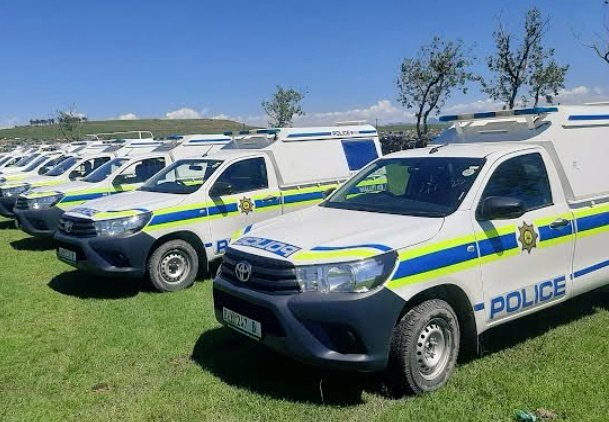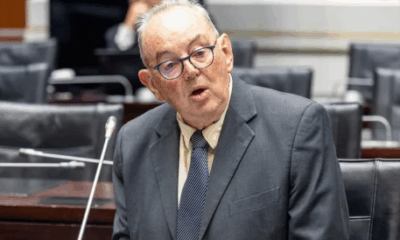News
DA’s Policing Push: A Lifeline for Cape Flats or Political Power Play?

Cape Town’s gang crisis sparks fierce debate over who should really be in charge of law and order
In communities like Mitchell’s Plain, Atlantis and Bonteheuwel, the sound of gunfire has become part of the daily soundtrack. Residents bury loved ones weekly, and bullet casings litter the pavements. It’s a haunting, lived reality one that doesn’t pause for political debates or promises.
Now, amid public outcry and rising crime stats, the Democratic Alliance (DA) is renewing its long-standing call for devolution of police powers a move it says could turn the tide in gang-ravaged areas. But critics say it’s a double-edged sword: a sincere attempt at fixing the broken system, or a slippery slope toward political opportunism.
Cape Flats: A Community on the Brink
The City of Cape Town and Western Cape province, both DA-led have consistently voiced frustration over their limited control in addressing violent crime. From turf wars to drug trafficking, crime syndicates have entrenched themselves in the everyday lives of residents. And the national police service, stretched thin and riddled with inefficiencies, hasn’t been able to keep up.
Michael Jacobs of the Mitchell’s Plain United Residents Association (MURA) didn’t mince his words.
“Every day, someone dies. Fear lives on our streets. We are surrounded by blood, death, and open coffins.”
His sentiments echo across Cape Flats, where residents feel abandoned by a state that seems incapable of protecting them.
The DA’s Plan: Take Charge or Take Over?
The DA’s plan isn’t just about putting more boots on the ground. They want investigative powers, the ability to collect crime intelligence, and forensic laboratories for testing firearms. They’re also calling for a formal intergovernmental dispute to force the issue.
Cape Town Safety and Security Mayco member JP Smith argues that the City is already doing more than its fair share. Their emergency call centre has routed over 16,000 incidents to SAPS in just 100 days, he says, while the national 10111 line continues to fail.
“We’re stepping in where others are failing. It’s not politics—it’s survival.”
Mzwakhe Nqavashe, chair of the City’s Safety and Security Portfolio Committee, agrees that both SAPS and the City need to do more. But right now, he says, City enforcement lacks the authority to investigate, while SAPS lacks the capacity to respond.
Academic Caution: Is This Neoliberalism in Disguise?
But not everyone is convinced that devolving power is the right move.
Professor Isaac Khambule, a political economist from the University of Johannesburg, warns that the DA’s push is steeped in neoliberal ideology. He sees echoes of past privatisation efforts like with PRASA and Transnet, where private stakeholders were introduced under the guise of reform.
“Yes, the DA has pushed this agenda for a while. But now that they’re part of the GNU, they don’t have the space to push unilateral reforms.”
Khambule raises an even deeper concern: What if this opens the door to a future push for Western Cape independence? The province has flirted with this idea before, with calls for “CapeXit” gaining traction on the political fringes.
“It’s not just about what the ANC will allow. Other parties in Parliament won’t want to set a precedent where sub-national governments start seizing power.”
More Than Politics: A Question of Lives
Yet, the lived reality in Cape Town forces a difficult question: can South Africans afford to let political fears delay change?
Residents don’t care who’s in charge—they just want to feel safe. Social media has seen a wave of support for greater local control, with hashtags like #FixTheFlats and #LocalPolicingNow gaining traction.
Meanwhile, others warn against “metro arrogance,” fearing a decentralised system could deepen inequalities between provinces that are well-resourced ,like the Western Cape and those that aren’t.
What Happens Next?
With the DA holding a majority in Cape Town’s council, their motion to initiate an intergovernmental dispute is likely to pass. What happens after that is less certain.
While the Constitution does allow for some provincial involvement in policing, the national government retains primary authority. Meaning: even if Cape Town wins this round, it’ll face a long, uphill legal and political battle.
A Nation Watching
South Africa has seen many reform promises stall. But the gunfire in Cape Flats won’t wait for court decisions or committee votes. The urgency on the ground is real.
Whether this is the beginning of meaningful reform—or just another chapter in the country’s political tug-of-war—remains to be seen.
But one thing is clear: the people of Cape Town can’t afford more delay.
{Source: IOL}
Follow Joburg ETC on Facebook, Twitter , TikTok and Instagram
For more News in Johannesburg, visit joburgetc.com



























